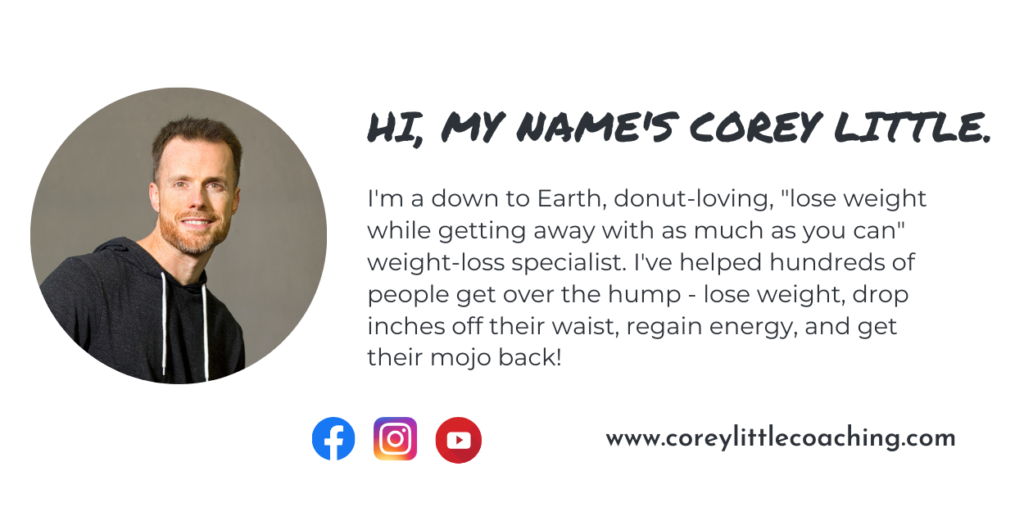
Listen on Spotify | Listen on Apple Podcast | Listen on Stitcher
In our weight loss journeys, we often encounter a common mistake that can hinder our progress without realizing it. This mistake is frequently observed among individuals who have struggled to lose weight, tried different methods, and felt disappointed. It might have become ingrained in our mindset and language, affecting our ability to achieve our goals. In this post, we are going to uncover the common mistake that might be really messing you up, and share how you can overcome it.
A Common Mistake That Might Be Really Messing You Up
The Sneaky Pitfall: Hoping and Trying
Inside my coaching group and in my conversations with people who are new to their weight loss journey, I often come across this mistake: hoping and trying. It sneaks into our language, subtly undermining our efforts. At first glance, you might think, “What’s wrong with hope and trying?” After all, hope is a positive attribute, right? Let’s take a closer look at the distinction between hope as a noun and hope as a verb.
Hope as a Noun
When we have hope as a noun, we believe that things can and will get better. Hope involves trusting, expecting, and having faith that a particular outcome will occur. This kind of hope is empowering. It overcomes feelings of hopelessness and despair. While it is essential to maintain hope in various aspects of life, that’s not what we are addressing here.
Hope as a Verb
On the other hand, hope as a verb implies wanting or wishing for something. When applied to weight loss, this type of hope can be problematic. While saying, “I hope I can lose weight” may seem harmless, it reveals a deeper issue that can undermine our progress. Let’s dive into the three significant problems associated with hoping and trying in the context of weight loss.
Problem #1: Giving Away Your Power
When we use words like “hope” and “try,” we unknowingly give up our power. Consider phrases such as “I’ll try to stick to the diet” or “I hope this program works.” When we say these things, we imply that our weight loss journey is beyond our control, similar to hoping for good weather. However, losing weight is within our control; it requires taking ownership and making conscious choices. By recognizing this mindset and changing it, we can regain our power and increase our chances of success.
Problem #2: Lack of Confidence
Using phrases like “I’ll try my best” or “I hope it’ll work” shows a lack of confidence in ourselves and our abilities. Although we may not consciously realize it, these words convey skepticism and doubt. Imagine how differently we would approach our weight loss journey if we knew with 100% certainty that we would achieve our goals. Building confidence in ourselves and the weight loss program we are following is crucial for building and maintaining motivation and commitment.
Problem #3: Disempowering Responsibility Shift
The third problem comes when we hope for results without taking full responsibility for our actions. This mindset implies that the program we follow or other external factors hold the key to our success. It takes away our personal accountability and builds a pattern of shifting blame. We must recognize that weight loss is a process that requires consistent effort and personal commitment. By embracing responsibility and understanding that our actions determine the outcome, we empower ourselves to make lasting changes.
Overcoming the Mistake
To overcome the mistake of hoping and trying, we need to shift our mindset and language. Here are a few steps to help you regain control of your weight loss journey:
- Embrace your power. Recognize that your weight loss journey is within your control. Instead of hoping or trying, choose to take intentional action toward your goals.
- Cultivate belief in yourself: Develop unwavering confidence in your ability to succeed. Focus on your strengths and past achievements, and trust that you have what it takes to achieve your desired results.
- Take personal responsibility: Understand that you are the primary driver of your weight loss journey. Own your choices, actions, and outcomes, and avoid relying solely on external factors.
The Journey to Sustainable Weight Loss
It’s essential to view weight loss as a long-term endeavor, similar to a challenging hike or a financial savings plan. Realistic results take time and effort. Avoid setting unrealistic expectations or falling into the trap of quick fixes. Embrace patience, consistency, and resilience as you progress toward your goals. By recognizing and rectifying the mistake of hoping and trying, you can reclaim your power and set yourself up for lasting weight loss success. Focus on personal growth, overall well-being, and a balanced mindset rather than solely fixating on numbers on a scale. Believe in yourself, leverage external support when needed, and commit to real-life weight loss with real-life solutions.

